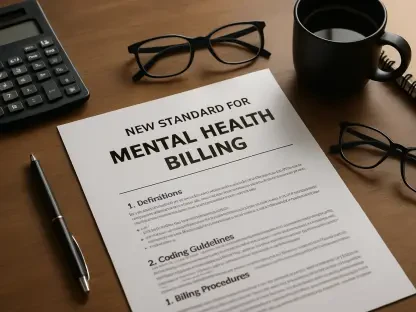In the complex landscape of American healthcare and civil rights, a significant legal battle has emerged that pits a coalition of 16 states and the District of Columbia against the Trump administration, highlighting a profound rift over transgender youth healthcare. This lawsuit, driven by allegations of unconstitutional overreach, centers on the administration’s efforts to curtail gender-affirming care—treatments such as hormone therapy and, in rare instances, surgeries—through what the states describe as intimidation tactics. These actions have led to the closure of clinics even in regions where such care is legally protected, exacerbating access issues for transgender youth. Beyond the courtroom, this conflict mirrors a broader societal debate over transgender rights, medical ethics, and the balance of power between state and federal authorities. As hospitals shutter services and families struggle to find care, the stakes of this legal challenge reveal not just policy disagreements, but deeply rooted cultural divides that continue to shape the national conversation.
Federal Authority Under Scrutiny
The crux of the legal action taken by the coalition of states rests on the assertion that the Trump administration has overstepped its bounds by targeting gender-affirming care without explicit legislative support. States such as New York and California, led by attorneys general like Letitia James and Rob Bonta, argue that the administration’s use of subpoenas, threats of criminal prosecution, and demands for sensitive patient data constitutes an attempt to enforce a de facto national ban. These tactics, they claim, are not rooted in established law but rather in a politically charged agenda aimed at restricting transgender rights. The states contend that such federal actions infringe upon their authority to regulate healthcare within their borders, raising critical questions about the limits of governmental power in medical decision-making. This legal standoff underscores a fundamental tension over whether federal directives can override state protections for transgender youth seeking essential care.
Beyond the issue of authority, the lawsuit highlights a perceived misuse of existing legal frameworks to target healthcare providers. The administration has leaned on unrelated statutes—covering areas like Medicaid fraud or food safety—to justify its scrutiny of gender-affirming treatments, a move the states argue is baseless and harassing. Major medical organizations, including the American Academy of Pediatrics and the American Medical Association, have lent support to the states’ position, emphasizing that these treatments align with evidence-based standards. This clash reveals a deeper struggle over interpreting laws in ways that either protect or penalize medical professionals offering care to transgender youth. As the case unfolds, it challenges the judiciary to define the boundaries of federal intervention in healthcare practices that are widely endorsed by the medical community, setting a potential precedent for how such disputes are resolved in the future.
Consequences for Access and Vulnerable Families
The fallout from this political and legal conflict has had tangible, often devastating effects on transgender youth and their families, as access to gender-affirming care diminishes across the country. Numerous clinics, from urban hubs like Los Angeles and Washington, D.C., to rural areas like Missoula, Montana, have ceased operations under the weight of a hostile regulatory environment fostered by federal actions. This has left many young patients with few options, often requiring long-distance travel to secure treatment—if they can afford it at all. The logistical challenges compound the emotional toll, as families navigate uncertainty and disruption in care plans that are critical to the well-being of transgender youth. Such closures not only limit medical access but also signal a broader erosion of support systems for a population already facing significant societal stigma.
Adding to the hardship are the personal narratives that illustrate the human cost of these policy battles. Consider the plight of an 18-year-old from Missoula, now grappling with the closure of the last local hospital providing gender-affirming care and facing daunting waitlists at distant facilities. Similarly, parents find themselves at a loss to explain to their transgender children why trusted medical services are no longer available, fostering feelings of betrayal and fear. These stories underscore how abstract debates over policy translate into real-world barriers, stripping away a sense of security for those directly affected. The ripple effects of clinic shutdowns extend beyond immediate healthcare needs, impacting mental health and family dynamics, and highlighting the urgent need for resolution in this contentious arena of public policy.
Debating the Science and Ethics of Care
Central to the legal and political discord is a fundamental disagreement over the validity and ethics of gender-affirming care for transgender youth, a debate that pits medical consensus against ideological opposition. Treatments such as hormone therapy, supported by extensive research and professional guidelines from leading health organizations, are framed by proponents as essential and often lifesaving interventions. Yet, the Trump administration has challenged this perspective, leveraging unrelated laws to argue that these practices are harmful and warrant restriction. By invoking statutes on issues like drug safety or fraud, the administration seeks to cast doubt on the legitimacy of such care, creating a chilling effect among providers who fear legal repercussions. This approach has deepened the divide, framing a medical issue as a moral and political battleground with significant implications for transgender youth.
Contrasting sharply with the administration’s stance is the pushback from both the suing states and the broader medical community, which insists on the evidence-based nature of gender-affirming care. The Department of Health and Human Services under the administration has released reviews questioning the scientific foundation of these treatments, aligning with Republican lawmakers who view them as ethically problematic. However, this skepticism is met with robust defense from medical experts who argue that the data supporting such care is clear and well-established. This scientific contention fuels the ongoing legal struggle, as it influences public perception and policy decisions. The uncertainty it breeds among healthcare providers and patients alike exacerbates disparities, particularly in regions where access was already limited, leaving the resolution of this debate critical to shaping the future of transgender healthcare.
Reflecting on a Path Forward
Looking back, the legal challenge mounted by 16 states and the District of Columbia against the Trump administration marked a pivotal chapter in the struggle for transgender healthcare rights. It brought to light the profound disruptions caused by federal policies, from widespread clinic closures to the personal anguish of families caught in the crossfire. The battle also exposed the intricate interplay of state versus federal power, alongside the clash between medical evidence and ideological agendas. As courts deliberated, the human toll of restricted access became a stark reminder of the stakes involved.
Moving forward, addressing this issue demands a multifaceted approach that prioritizes both legal clarity and compassionate policy. Courts must establish firm boundaries on federal authority in healthcare to prevent overreach, while policymakers should focus on protecting access to evidence-based care for transgender youth. Additionally, fostering dialogue between medical experts and legislators could help bridge the gap between science and policy, ensuring decisions are grounded in facts rather than politics. As this conflict continues to evolve, sustained advocacy and public awareness will be essential to safeguard the rights and well-being of a vulnerable population, paving the way for a more equitable healthcare landscape.









